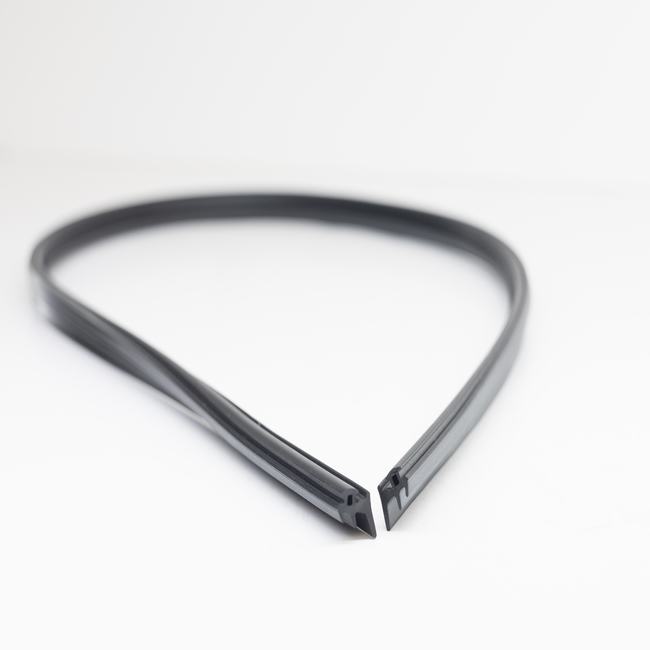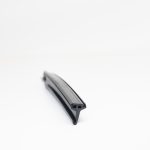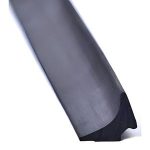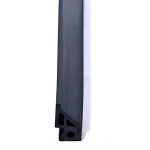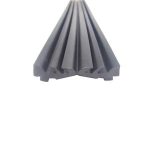PVC pipe seals, also known as PVC pipe gaskets or PVC pipe connectors, are specialized components used in the installation and maintenance of PVC (Polyvinyl Chloride) pipes. These seals serve several critical functions within PVC pipe systems, including preventing leaks, ensuring watertight connections, and providing flexibility to accommodate movement or expansion within the pipelines. Here’s an overview of PVC pipe seals:
Key Features of PVC Pipe Seals:
- Material Composition: PVC pipe seals are typically made from high-quality PVC material. PVC is chosen for its durability, resistance to corrosion, and suitability for use with potable water.
- Flexibility: These seals are designed to be flexible and pliable, allowing them to conform to the shape of the pipes and create a secure, watertight seal.
- Sealing Effectiveness: PVC pipe seals are engineered to provide an effective barrier against leaks, ensuring the integrity of the pipeline system.
- UV Resistance: Some PVC pipe seals are formulated to resist the damaging effects of ultraviolet (UV) radiation, making them suitable for outdoor installations.
Advantages of PVC Pipe Seals:
- Leak Prevention: The primary function of PVC pipe seals is to prevent leaks, which is crucial for maintaining the efficiency and safety of water supply or drainage systems.
- Watertight Connections: These seals create watertight connections between PVC pipes, ensuring that no water escapes or infiltrates the system.
- Corrosion Resistance: PVC is highly resistant to corrosion and chemical degradation, making it suitable for a wide range of applications, including potable water systems.
- Easy Installation: Installing PVC pipe seals is typically straightforward, reducing labor costs and installation time.
Applications of PVC Pipe Seals:
- Water Supply: PVC pipe seals are commonly used in water supply systems, including municipal water distribution, irrigation, and residential plumbing.
- Drainage Systems: They are employed in drainage systems, including stormwater drainage and wastewater collection.
- Sewage and Sanitary Systems: PVC pipe seals help prevent leaks in sewage and sanitary pipelines, ensuring hygienic and environmentally safe disposal of waste.
- Industrial Pipelines: In industrial settings, PVC pipe seals are used for conveying various liquids, chemicals, and industrial wastewater.
- Construction and Infrastructure: PVC pipe seals are used in various construction projects, such as building water supply, sewer systems, and underground drainage.
Installation Considerations:
- Proper Sizing: Choosing the correct size of PVC pipe seal is essential to ensure a tight and secure fit.
- Clean Surfaces: Before installation, ensure that the pipe surfaces are clean, dry, and free from contaminants to create an effective seal.
- Proper Compression: Follow the manufacturer’s guidelines for the recommended compression or torque to achieve a reliable and watertight seal.
- Environmental Factors: Consider environmental conditions such as temperature, UV exposure, and chemical exposure when selecting the appropriate type of PVC pipe seal.
- Inspection and Maintenance: Regular inspections and maintenance of the seals are essential to ensure their continued effectiveness over time.
In summary, PVC pipe seals are essential components in PVC pipe systems, serving to prevent leaks, create watertight connections, and maintain the integrity of various water supply, drainage, and sewage systems. Proper selection, installation, and maintenance of these seals are crucial to the long-term reliability of PVC pipelines.
